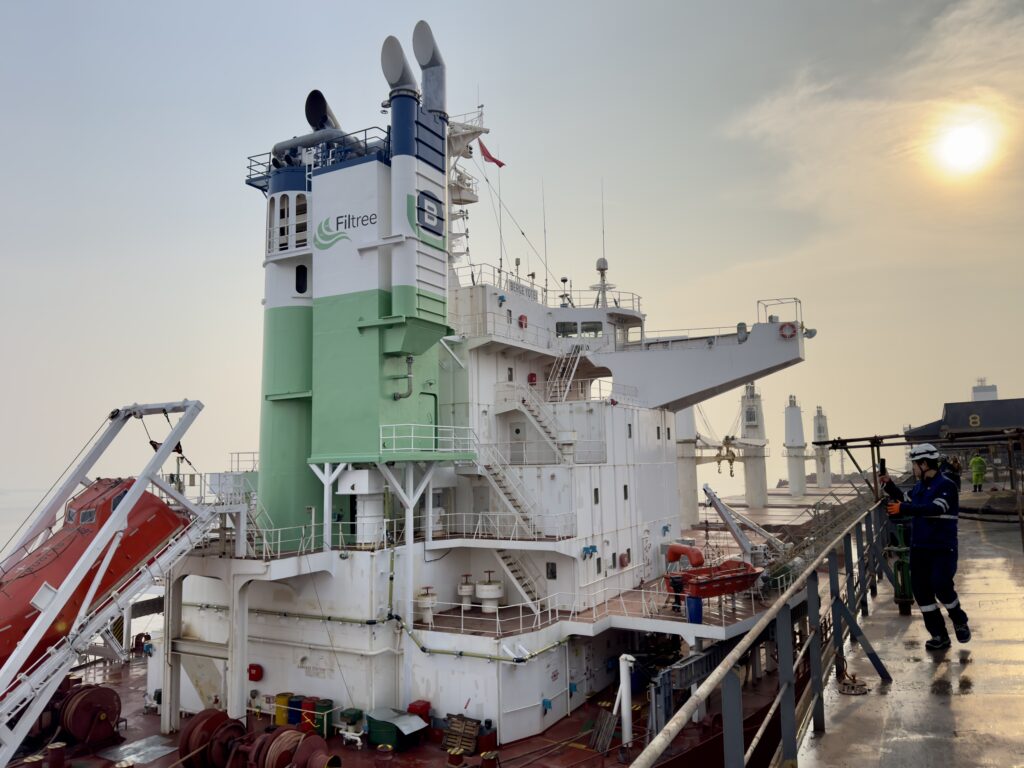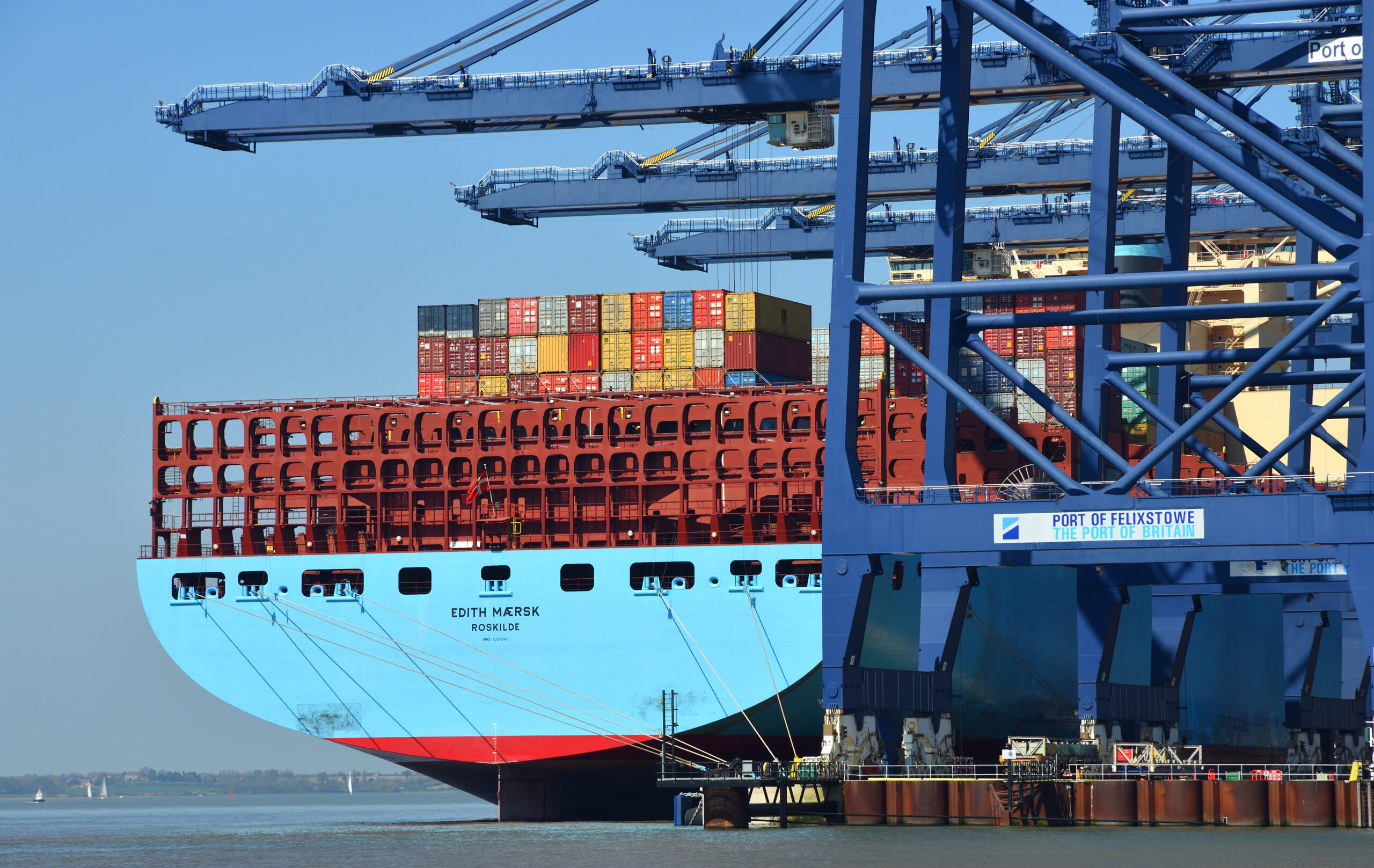Singapore-based dry bulk shipowner Berge Bulk has launched a pilot programme for onboard carbon capture and storage (OCCS) on its 63,000 dwt Ultramax vessel, the Berge Yotei. The Filtree System, developed by Dutch firm Value Maritime, combines CO2 capture with exhaust gas cleaning technology, which is estimated to remove up to 15 tonnes of CO2 per day and reduce operational emissions by 30%.
This trial is part of Berge Bulk’s ‘Maritime Marshall Plan’, named after the company’s CEO, James Marshall. The four-pronged decarbonisation strategy focuses on energy efficiency, new technologies, alternative fuels, and carbon capture. Since 2021, Berge Bulk has planted over 18 million trees as part of its commitment to offset emissions through reforestation, with a target of 25 million by 2030 and a goal of achieving a zero-carbon fleet by 2050.
According to Value Maritime, the Filtree System is distinct from traditional scrubbers because it captures both sulphur oxides and carbon dioxide. CO2 is absorbed into a reusable amine solution, which can be offloaded at port for regeneration or industrial reuse. This process supports applications such as greenhouse enrichment and beverage carbonation to contribute to a circular carbon economy.
James Marshall, Berge Bulk CEO, commented on the pilot project: ‘Carbon capture is a key pillar of our decarbonisation strategy. While we remain committed to optimising fleet efficiency, installing decarbonisation technology, and switching to new fuels, we must also capture carbon at the same time. We’ve been actively capturing carbon through nature-based solutions on shore for many years, now it’s time to also start capturing carbon on board.’

Early adopters of OCCS technology are providing the industry with valuable insights into how carbon capture technology can be scaled, monitored, and integrated into fleet operations. Value Maritime has installed similar systems on tankers operated by Eastern Pacific Shipping and Mitsui O.S.K. Lines.
Yvette van der Sommen, Value Maritime’s Global Director noted that the environment is changing to make OCCS commercially viable: ‘Regulatory developments are moving forward, and shipowners are increasingly eager to adopt carbon capture technology. Some have already begun implementing it. Interest is particularly strong in Northern Europe, where the push for decarbonisation is accelerating.’
Over the past year, Berge Bulk has expanded its decarbonisation strategy through a series of technology trials. In August 2024 it announced its partnership with with Sofar Energy to explore wind-assisted voyage optimisation on two vessels, and in January 2025 it became the first shipowner to fully adopt B100 biodiesel on a bulk carrier transporting iron ore from Australia to China. The OCCS pilot adds to this portfolio and allows Berg Bulk to contribute valuable data to the rest of the industry on the feasibility of OCCS as part of a multi-track decarbonisation strategy.



